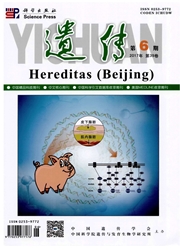

 中文摘要:
中文摘要:
复杂特点是其性质被决定由的特征基因并且环境因素。通常,复杂特点与连续分布,二进制代码或范畴的特点包括古典量的特点,分离分发由不能确切被测量的多基因和另外的特点控制了,例如行为和心理学。在植物和动物的大多数人的复杂疾病和最经济地重要的特点属于范畴。理解复杂特点的分子的基础在植物并且动物繁殖的基因改进起一个重要作用。在这篇文章,复杂特点的概念和研究背景被总结,并且策略,方法和伟人进行那在把被成为了复杂特点的基因基础被考察。在未来研究的挑战和可能的开发也被讨论。
 英文摘要:
英文摘要:
Complex traits are the features whose properties are determined by both genetic and environmental factors. Generally, complex traits include the classical quantitative traits with continuous distribution, the binary or categorical traits with discrete distribution controlled by polygene and other traits that cannot be measured exactly, such as behavior and psychology. Most human complex diseases and most economically important traits in plants and animals belong to the category. Understanding the molecular basis of complex traits plays a vital role in the genetic improvement of plant and animal breeding. In this article, the conception and research background of complex traits were summarized, and the strategies, methods and the great progress that had been made in dissecting genetic basis of complex traits were reviewed. The challenges and possible developments in future researches were also discussed.
 同期刊论文项目
同期刊论文项目
 同项目期刊论文
同项目期刊论文
 期刊信息
期刊信息
